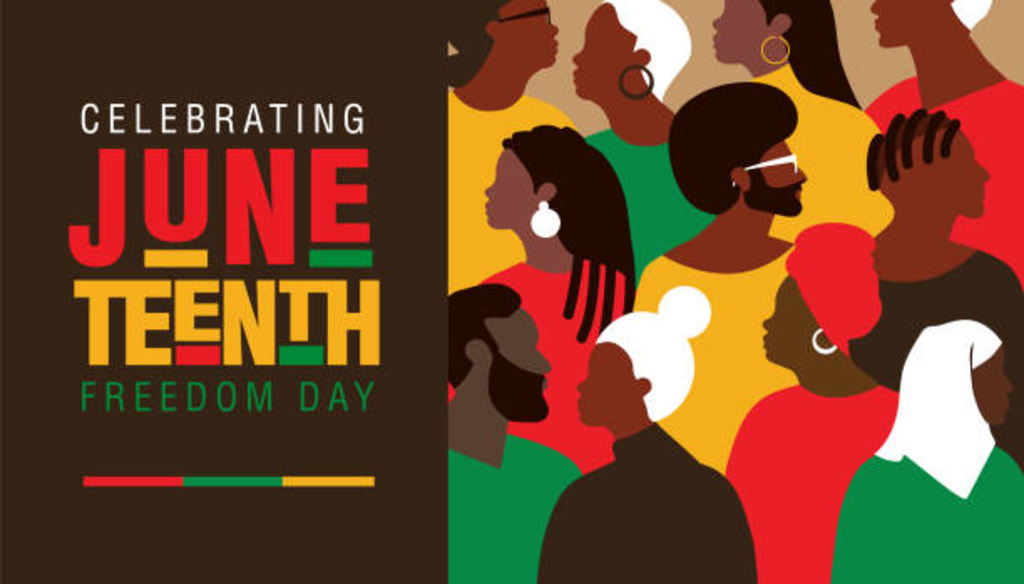Celebrating Juneteenth 2023
Honoring Freedom and Reflecting on Progress

Introduction:
Juneteenth, also known as Freedom Day, has long held significance for the African American community in the United States. It commemorates the day when news of the Emancipation Proclamation reached enslaved African Americans in Texas, finally granting them their freedom on June 19, 1865. As we celebrate Juneteenth in 2023, it is an opportune moment to reflect on the progress made since that historic day and the continued importance of this commemoration.
Historical Significance:
Juneteenth marks a pivotal moment in American history, symbolizing the end of slavery and the triumph of freedom over oppression. On that day in 1865, Union General Gordon Granger arrived in Galveston, Texas, and read General Order No. 3, which announced the emancipation of slaves in Texas and the enforcement of the Emancipation Proclamation. This momentous event occurred more than two years after President Abraham Lincoln issued the proclamation, highlighting the complex and challenging process of emancipation in various parts of the country.
Celebrating Freedom:
Juneteenth serves as a reminder to honor the struggles and resilience of African Americans throughout history. It is a day to celebrate freedom, unity, and the contributions of African American culture to the fabric of American society. Communities across the nation gather to commemorate this day with parades, music, dance, and cultural events. In 2023, as we emerge from a global pandemic, these celebrations take on an even greater significance, offering an opportunity to reconnect and strengthen bonds within communities.
Education and Reflection:
Juneteenth also calls for education and reflection, as it reminds us of the injustices endured by African Americans and the ongoing fight for equality. It provides a platform to acknowledge the deep-rooted history of slavery and its lasting effects on society. In schools and educational institutions, Juneteenth can be an occasion to teach students about the struggles and achievements of African Americans, fostering a deeper understanding of the importance of equal rights and social justice.
Progress and Challenges:
While celebrating Juneteenth, it is vital to recognize the progress made since 1865 while acknowledging the challenges that persist. The Civil Rights Movement of the 20th century and subsequent legislative advancements, such as the Voting Rights Act of 1965, have brought significant changes to the lives of African Americans. However, systemic racism and inequality continue to pose obstacles, highlighting the need for ongoing efforts to ensure justice, inclusivity, and equal opportunities for all.
Juneteenth as a National Holiday:
In recent years, there has been a growing movement to recognize Juneteenth as a national holiday in the United States. In 2021, this long-awaited milestone was achieved when President Joe Biden signed the Juneteenth National Independence Day Act into law. This official recognition underscores the significance of Juneteenth in American history and further raises awareness about the struggles and achievements of African Americans.
Community Engagement and Activism:
Juneteenth offers an opportunity for individuals and communities to engage in activism and promote positive change. It encourages open dialogue about racial equality, social justice, and the elimination of systemic racism. Community organizations and grassroots movements often utilize this day to organize workshops, panel discussions, and peaceful protests, furthering the goal of a more inclusive and equitable society.
Looking Ahead:
As we celebrate Juneteenth 2023, we should view it as a reminder of the work that lies ahead. It is a time to come together, acknowledge the achievements made, and address the challenges that persist. The ongoing fight for equality and justice requires collective effort and sustained commitment from individuals, communities, and institutions.
Conclusion:
Juneteenth 2023 represents a significaAfrican.nt milestone in the ongoing recognition and celebration of African. The origins of Juneteenth can be traced back to June 19, 1865, when Union General Gordon Granger arrived in Galveston, Texas, and proclaimed the emancipation of slaves in accordance with the Emancipation Proclamation issued by President Abraham Lincoln in 1862. However, there is no specific individual or organization that can be identified as the sole "funder" of Juneteenth.
About the Creator
Benjamin. B.
content creator, freelancer and fun to be with.....






Comments (1)
Nice article